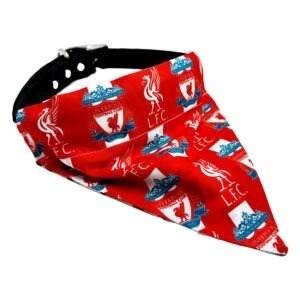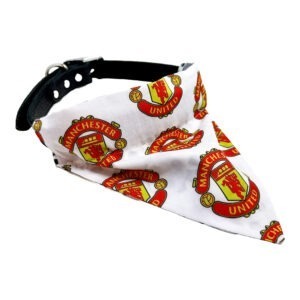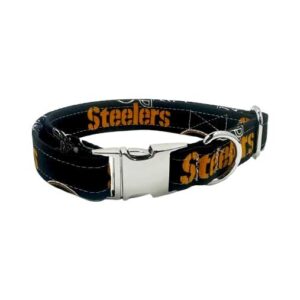Bulldogs are among the most endearing and loyal breeds. Known for their muscular stature and gentle disposition, Bulldogs make an excellent choice for both families and individuals. However, owning a Bulldog also comes with unique responsibilities – a prime aspect of which is their diet and exercise. Due to their distinct physical attributes and propensity towards certain health issues, Bulldogs require a carefully balanced diet and a regulated exercise routine.
The quality and quantity of the food you feed your Buldog, along with the amount of physical activity they engage in, significantly impacts their overall health, longevity, and happiness. Bulldogs are prone to obesity, which can lead to a slew of health problems. Exercise helps mitigate this risk, but due to their physical structure, care must be taken not to over-exert them.
This guide will provide you with comprehensive knowledge about Bulldogs’ dietary needs, exercise requirements, and how to manage common health issues through diet. By the end, you’ll be equipped with the knowledge needed to craft a personalized diet and exercise plan for your beloved Bulldog.
Some of our latest products...
-
Pañuelos para perros
Liverpool FC Dog Bandana
$ 13.19 – $ 16.12 Dólar estadounidense Seleccionar opciones Este producto tiene múltiples variantes. Las opciones se pueden elegir en la página de producto -
Pañuelos para perros
Manchester City Dog Bandana
$ 13.19 – $ 16.12 Dólar estadounidense Seleccionar opciones Este producto tiene múltiples variantes. Las opciones se pueden elegir en la página de producto -
Pañuelos para perros
Manchester United Dog Bandana
$ 13.19 – $ 16.12 Dólar estadounidense Seleccionar opciones Este producto tiene múltiples variantes. Las opciones se pueden elegir en la página de producto -
Collares para perros
Pittsburgh Steelers Dog Collar
$ 20.52 Dólar estadounidense Seleccionar opciones Este producto tiene múltiples variantes. Las opciones se pueden elegir en la página de producto
Understanding Your Bulldog’s Nutritional Needs
Bulldogs, like all dogs, require a balanced diet that comprises proteins, carbohydrates, fats, vitamins, and minerals. However, there are specific considerations to keep in mind when feeding a Bulldog. First and foremost, they have a slow metabolism and can gain weight quickly. Therefore, Bulldogs need a diet that’s high in quality protein and fiber, with moderate fat content. Foods rich in Omega-3 fatty acids can help maintain their skin and coat health, while those with glucosamine can support their joint health.
The nutritional needs of Bulldogs vary across different life stages. Puppies require a protein-rich diet for proper growth, while adults need a well-balanced diet to maintain optimal weight and health. Senior Bulldogs might need a diet that’s low in calories but high in fiber and nutrients. Keep in mind that every Bulldog is unique and may have individual dietary needs based on their weight, health status, and activity level.
Choosing the right dog food is essential. Opt for high-quality brands that list real meat (like chicken, beef, or fish) as their primary ingredient and avoid those with artificial additives or fillers.
Addressing Common Bulldog Health Issues Through Diet
Bulldogs are susceptible to certain health issues such as obesity, skin disorders, and joint problems – all of which can be managed, to some extent, through their diet. Bulldogs have voracious appetites, and overfeeding can lead to rapid weight gain, making them prone to obesity. Hence, portion control is crucial. Use feeding guidelines as a starting point and adjust based on your Bulldog’s needs.
Skin issues, such as dermatitis, are common in Bulldogs due to their wrinkles. A diet rich in Omega-3 and Omega-6 fatty acids can help promote healthy skin and coat, reducing the likelihood of skin conditions.
Bulldogs often suffer from joint problems like hip dysplasia due to their unique physique. Foods enriched with glucosamine and chondroitin can support joint health.
Supplements can also play a role in a Bulldog’s diet. While they should never replace a balanced diet, they can support certain aspects of your Bulldog’s health. For instance, fish oil supplements can enhance skin and coat health, while glucosamine supplements can support joint function. Always consult your vet before introducing any supplements into your Bulldog’s diet.
Leer más: Cuidado con los Bulldog: Cómo solucionar problemas de salud comunes en la raza Bulldog
Exercise Needs for Bulldogs
While Bulldogs are not the most active breed, they still need regular exercise to stay healthy. Regular physical activity helps manage their weight, keeps their joints flexible, and provides mental stimulation. However, Bulldogs are prone to overheating and breathing problems due to their brachycephalic (short-nosed) nature, so care should be taken not to over-exert them.
Exercise should be moderate and consistent. A couple of short walks each day, along with some playtime, is usually sufficient. During warmer weather, aim for early morning or late evening walks when temperatures are cooler. Always have water available during exercise to keep your Bulldog hydrated.
Specific exercises that work well for Bulldogs include slow-paced walks, playtime with toys, and games that involve short bursts of running. Activities that put excessive strain on their joints, like long-distance running or jumping, should be avoided.
The Impact of Diet and Exercise on Your Bulldog’s Behavior
Diet and exercise play a crucial role in not only maintaining a Bulldog’s physical health but also their mental well-being and behavior. A Bulldog that is fed a well-balanced diet and gets regular exercise is more likely to be happy, well-adjusted, and less prone to behavioral issues.
Unhealthy diets can lead to obesity, which can cause lethargy, irritability, and even aggression in Bulldogs. Lack of exercise can result in similar behavioral changes. Bulldogs, like all dogs, can get bored, and without adequate physical and mental stimulation, they may resort to destructive behaviors like chewing or excessive barking.
On the other hand, a healthy diet boosts energy levels, improving your Bulldog’s mood and behavior. Regular exercise provides mental stimulation, reduces boredom, and can improve common behavior problems like excessive chewing or barking. Furthermore, exercise is an excellent way for your Bulldog to expend energy, resulting in a calmer, more relaxed pet.
Creating a Personalized Diet and Exercise Plan for Your Bulldog
Understanding your Bulldog’s unique needs is the first step towards creating a personalized diet and exercise plan. Factors to consider include your Bulldog’s age, size, health status, and activity level.
Work with your vet or a canine nutritionist to develop a diet plan that meets your Bulldog’s specific needs. They can help determine the right amount of calories your Bulldog should be eating based on their age, weight, and activity level. Additionally, they can provide advice on the type of dog food and any potential supplements that might be beneficial.
Similarly, your vet can guide you on creating an exercise routine that’s safe and beneficial for your Bulldog. This routine should consider your Bulldog’s age, fitness level, and any existing health conditions. Remember, the goal is to provide your Bulldog with consistent, moderate exercise, not to make them an endurance athlete.
Conclusión
Caring for a Bulldog is a rewarding experience, but it does require a thorough understanding of their specific dietary and exercise needs. A balanced diet and regular, moderate exercise are the cornerstones of your Bulldog’s overall health and longevity. Investing time in learning about your Bulldog’s nutritional needs and creating an exercise routine that suits their unique physique will go a long way in ensuring they lead a healthy, happy life. Bulldogs are an extraordinary breed, and with the right care, their love and loyalty will only grow stronger.
preguntas frecuentes
What should I feed my Bulldog puppy?
Bulldog puppies should be fed a balanced diet rich in protein for muscle development, healthy fats for energy, and complex carbohydrates for digestive health. Look for high-quality puppy food that’s specifically formulated for medium-sized breeds or Bulldogs. Also, remember that puppies have small stomachs but high energy needs, so they’ll need to eat smaller, more frequent meals. Always consult your vet to determine the best diet plan for your puppy.
¿Cuánto ejercicio necesita mi Bulldog?
Bulldogs are not as active as some other breeds, but they still need regular exercise to stay fit and healthy. Generally, an adult Bulldog should get at least 30 minutes to an hour of moderate exercise each day. This can be divided into a couple of short walks and some playtime at home. Remember that Bulldogs are susceptible to overheating, so avoid exercising them in hot weather and always have fresh water available.
How can I tell if my Bulldog is overweight?
Signs of obesity in Bulldogs include difficulty walking or breathing, lethargy, and an inability to feel their ribs when you touch their sides. Bulldogs are a naturally stocky breed, but they should have a defined waist when viewed from above. If you’re unsure, it’s best to consult your vet. They can assess your Bulldog’s weight and advise on diet modifications or exercise if necessary.
My Bulldog has skin issues. Can diet help?
Yes, diet can play a significant role in managing skin issues in Bulldogs. Bulldogs are prone to skin conditions, often related to their wrinkles. Feeding them a diet rich in Omega-3 and Omega-6 fatty acids can help maintain healthy skin and coat. Supplements, like fish oil, may also help. However, it’s essential to consult with your vet before making any significant changes to your Bulldog’s diet.
How can I exercise my Bulldog in hot weather?
Bulldogs are brachycephalic, meaning they have short noses and flat faces, which can make them prone to overheating. During hot weather, try to walk your Bulldog early in the morning or late in the evening when temperatures are cooler. Indoor exercises or playtime can also be a good alternative. Always have fresh water available and keep an eye out for signs of overheating such as excessive panting, drooling, or fatigue. If you notice any of these signs, stop the exercise immediately and allow your Bulldog to rest and cool down.





